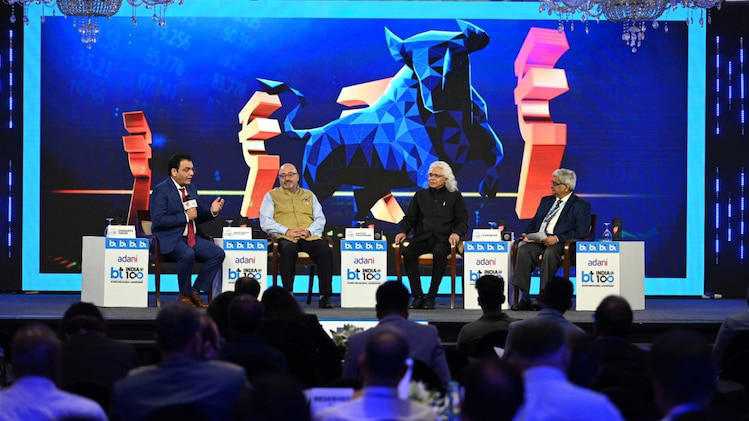In recent years, China has emerged as a prominent player in the global supply chain landscape. However, its actions, policies, and practices have sparked debates about whether it is acting as a responsible global partner or a disruptive force. This article delves into the dynamics of China’s role in the global supply chain and explores the necessity of decoupling India from China’s supply chain for greater stability and self-reliance.
As globalization led to interconnected economies, China emerged as the world’s manufacturing hub, significantly influencing global supply chains. However, concerns have been raised about China’s behavior, leading to calls for countries like India to reconsider their dependency on China’s supply chain.
China’s Role in the Global Supply Chain
China’s manufacturing prowess and cost-efficient production have positioned it as a cornerstone of the global supply chain. Many countries rely heavily on Chinese imports, from electronics to pharmaceuticals, making China’s stability crucial for international trade.
Dominance in Manufacturing
China’s massive manufacturing capabilities have allowed it to produce goods at unmatched scales, giving it a competitive edge in various sectors. This dominance, while beneficial for global affordability, has also created vulnerabilities in supply chain dynamics.
Trade Dependencies
Numerous nations find themselves intertwined in complex trade relationships with China. While these connections foster economic growth, they also subject countries to potential disruptions due to geopolitical tensions or economic policy shifts.
Challenges Posed by China
China’s actions, such as territorial disputes and intellectual property violations, have strained international relations. These actions raise concerns about the reliability of its role in the global supply chain.
Geopolitical Tensions
China’s assertive territorial claims in various regions have led to friction with neighboring countries. Such tensions can disrupt trade routes and access to crucial resources, impacting the stability of the supply chain.
Intellectual Property Concerns
China’s track record of intellectual property theft and forced technology transfers has created apprehensions among foreign companies. This compromises innovation and affects the willingness of nations to collaborate closely in the supply chain.
The Case for Decoupling
In light of the challenges posed by China, the idea of decoupling from its supply chain gains traction. Decoupling involves reducing dependency on Chinese imports to enhance national security and foster self-reliance.
Enhancing National Security
Overreliance on a single source for critical goods exposes nations to vulnerabilities. By diversifying suppliers and production bases, countries can safeguard their national security interests.
Diversifying Supply Sources
Decoupling encourages countries to explore alternative supply sources within their regions or globally. This strategy can mitigate risks associated with disruptions in one particular region.
Steps Toward Decoupling
Decoupling from China’s supply chain requires concerted efforts and strategic planning.
Fostering Domestic Industries
Countries aiming for self-sufficiency should invest in domestic industries to fill the void left by reduced imports. This not only creates jobs but also boosts innovation and economic growth.
Strengthening International Alliances
Collaboration among like-minded nations is vital for successful supply chain decoupling. By forming alliances, countries can collectively negotiate trade terms and establish new supply routes.
The Road Ahead for India
India, with its burgeoning economy and technological capabilities, has the potential to emerge as a strong player in the post-decoupling era.
Opportunities for Growth
Decoupling presents India with opportunities to expand its manufacturing base and become a reliable supplier for other nations. This can lead to enhanced economic growth and international influence.
Overcoming Implementation Hurdles
While the benefits of decoupling are clear, the process is not without challenges. India must address infrastructural limitations, bureaucratic hurdles, and skill gaps to fully capitalize on this shift.
Conclusion
China’s role in the global supply chain landscape is complex. While its manufacturing capabilities have driven economic growth, concerns about its actions and policies have prompted countries to rethink their dependence. Decoupling from China’s supply chain offers a pathway to greater self-reliance, national security, and a more stable global trade environment.
FAQs
Q. What is the primary concern behind decoupling from China?
A. Decoupling aims to reduce dependency on China’s supply chain due to concerns about geopolitical tensions, intellectual property theft, and vulnerabilities in the global trade landscape.
Q. How might decoupling impact global trade?
A. Decoupling could reshape global trade dynamics by encouraging countries to diversify their supply sources, potentially leading to the formation of new trade alliances.
Q. Are there any successful precedents for supply chain decoupling?
A. While complete decoupling is complex, some countries have successfully diversified their supply chains in specific sectors to reduce dependency on a single source.
Q. What industries are particularly vulnerable to supply chain disruptions?
A. Industries heavily reliant on just-in-time production and complex global supply networks, such as electronics and pharmaceuticals, are especially vulnerable to disruptions.
Q. How can countries ensure self-reliance while maintaining international cooperation?
A. Countries can balance self-reliance by strengthening domestic industries, fostering international alliances, and engaging in diplomatic negotiations to ensure stable trade relations.
